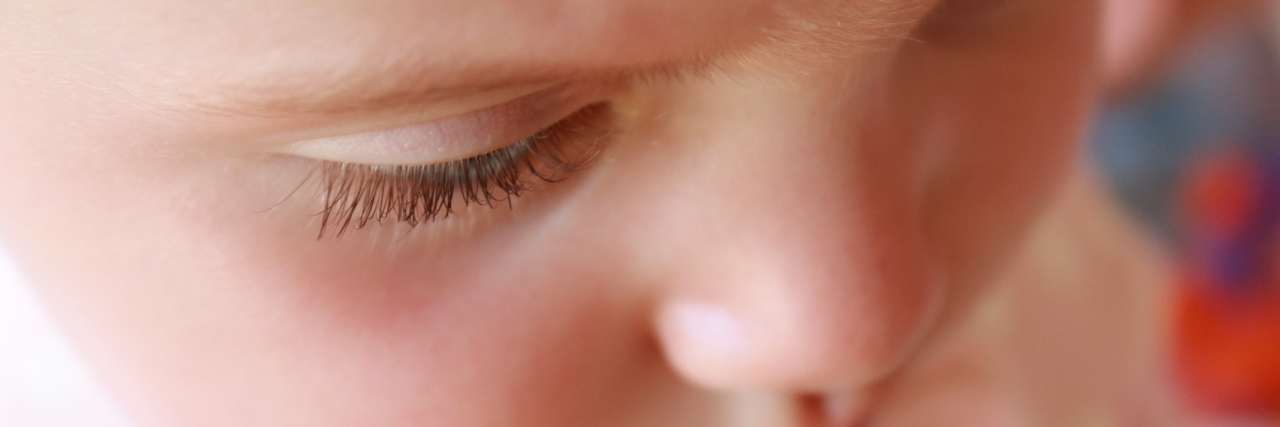The Two Words I Say When People Comment They Don't 'See' My Child's Disability
When people see my 2-year-old-daughter thrashing around and screaming in the grocery store, it’s easier to assume I’m a bad mother, not that my child’s nervous system is glitching out and telling her the flickering, fluorescent light is a sign of the impending apocalypse. It’s easier to assume I’m pandering to her when I let her hang from the cart — as often as she wants — because most people do not know what “proprioception” is.
My daughter, Elise, has sensory processing disorder (SPD), and it has changed our entire life. Like autism, ADHD, and countless other “invisible” disabilities, SPD has no physical mark that discerns it. Kids with this disorder look like neuro-typical children, but they do not function like neuro-typical children do.
Of all the challenges that SPD has presented me and my child with, I think the one that used to hurt me the most was other people’s reactions. When people failed to acknowledge that something was different — that stung more than anything else I had to go through. What I’m talking about are the dismissive people — the people who think they understand better than I do — or better than my child’s therapists and doctors do. I can explain the diagnosis and quote our pediatric neurologist, and people will dismiss me by saying, “Every child has their quirks,” or, my personal favorite, “She seems ‘normal’ to me — having children is just difficult.”
I used to get frazzled or defensive, until the one day I stayed calm. Instead of getting mad, I said: “Thank you!”
That’s right, “thank you.” Just two, simple little words.
Then I explained, “We’ve spent countless hours researching coping strategies, tracking down a diagnosis and working with therapists to help her function at as high of a level as possible. I’m so glad her disabilities are not obvious to the untrained eye!”
Can I be perfectly honest with you? The first time I said this, it was more of a retort than a response. There was some anger in my tone. And yes, I still went home fuming. Then I realized…we had spent hours developing coping strategies, getting a diagnosis, and working with therapists. My hopes and dreams are that one day, when we send her off to school, she can rise to the challenge, make friends and participate without anyone knowing anything is different unless she chooses to share it with them.
That means these one or two people who were trying to belittle me were actually giving me a huge complement! And that’s exactly how I decided to take it. Now when I am confronted with a situation that would have previously left me feeling bad about myself and my parenting, I can say, “Thank you!” and mean it.
There are always going to be people in the world who choose not to “see” my child’s disability. It will always be easier for them to assume I am a bad parent than to look a little deeper. But now, I realize what they mean as an insult is actually a huge complement and I can simply thank them for their encouragement!
We want to hear your story. Become a Mighty contributor here.

